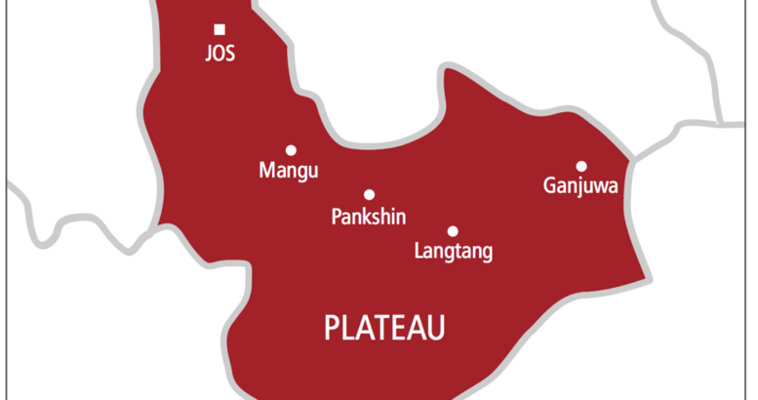Escalating Violence and Accusations in Plateau State: A Cycle of Attacks and Retaliation
Plateau State, Nigeria, continues to grapple with a surge in violence, marked by inter-communal clashes, cattle rustling, and targeted killings. The latest incidents in Bassa and Mangu Local Government Areas highlight the precarious security situation and the deep-seated mistrust between farming and herding communities. In Bassa LGA, an ambush attributed to Fulani militias claimed the lives of two Irigwe youths and left two others injured, including a military personnel. The attack also resulted in the destruction of over 20 farms, exacerbating existing tensions and further jeopardizing livelihoods. This incident underscores the ongoing cycle of violence that has plagued the region, often characterized by retaliatory attacks and counter-accusations. The Irigwe Youth Movement’s prompt condemnation of the attack highlights the urgent need for a thorough investigation and the apprehension of those responsible.
Simultaneously, in Mangu LGA, a reported cattle rustling incident involving over 300 cows has ignited a fresh wave of accusations between herders and farming communities. The Miyetti Allah Cattle Breeders Association of Nigeria (MACBAN) pointed fingers at Mwaghavul youths, alleging their involvement in the rustling. However, the Mwaghavul Development Association vehemently denied these accusations, emphasizing the criminal nature of cattle rustling and urging a proper investigation by security agencies. This incident underscores the complexities of the security challenges in Plateau State, where accusations and counter-accusations often overshadow the pursuit of justice and hinder efforts towards peaceful coexistence. The involvement of Operation Safe Haven, a military task force deployed to maintain peace in the region, in tracking the rustled cattle highlights the gravity of the situation and the need for a multi-pronged approach to address the security concerns.
The conflicting narratives surrounding these incidents reveal a deep-seated mistrust between communities, making it challenging to ascertain the truth and hold perpetrators accountable. The Mwaghavul Development Association’s concerns about the stereotyping of their community as thieves underscore the potential for such accusations to further inflame tensions and escalate the cycle of violence. The Association’s call for a thorough investigation by security agencies rather than resorting to social media accusations highlights the need for due process and a commitment to uncovering the facts, irrespective of ethnic or communal affiliations. The emphasis on the criminal nature of cattle rustling, divorced from tribal identity, underscores the importance of addressing these issues through the lens of law enforcement rather than inter-communal conflict.
Furthermore, the reported death of 36 cattle due to alleged poisoning in Mangu LGA adds another layer of complexity to the already volatile situation. This incident, occurring in close proximity to the cattle rustling, raises questions about the potential connection between the two events and the possibility of retaliatory actions. The MACBAN’s lamentations over the losses, coupled with the earlier incident of 60 rustled cattle and a missing herder, paint a grim picture of the challenges faced by herding communities in the region. The escalating number of cattle deaths due to both rustling and alleged poisoning threatens the livelihoods of pastoralists and further fuels the cycle of violence.
The recurring nature of these incidents necessitates a comprehensive and multifaceted approach to address the root causes of the conflict. This includes strengthening security measures, promoting inter-communal dialogue, addressing issues of land ownership and resource management, and fostering economic opportunities for all communities. The involvement of security agencies like Operation Safe Haven is crucial in maintaining law and order, but their efforts must be complemented by initiatives aimed at building trust and promoting peaceful coexistence. Addressing the underlying socioeconomic factors that contribute to conflict, such as poverty, unemployment, and lack of access to resources, is essential for achieving sustainable peace in the region.
The situation in Plateau State demands a concerted effort from all stakeholders, including government agencies, security forces, community leaders, and civil society organizations. Building trust between communities, promoting dialogue, and ensuring accountability for criminal acts are crucial steps towards breaking the cycle of violence and fostering a more peaceful and secure environment. The ongoing incidents serve as a stark reminder of the fragility of peace and the urgent need for a comprehensive strategy to address the complex and interconnected challenges facing the region. The call by MACBAN for security agencies to recover the stolen cattle and address the ongoing attacks, while emphasizing their commitment to peaceful coexistence, underscores the desire for a resolution to the conflict and a return to normalcy. However, achieving this requires a collective commitment from all parties to prioritize dialogue, reconciliation, and the pursuit of justice through established legal channels.


